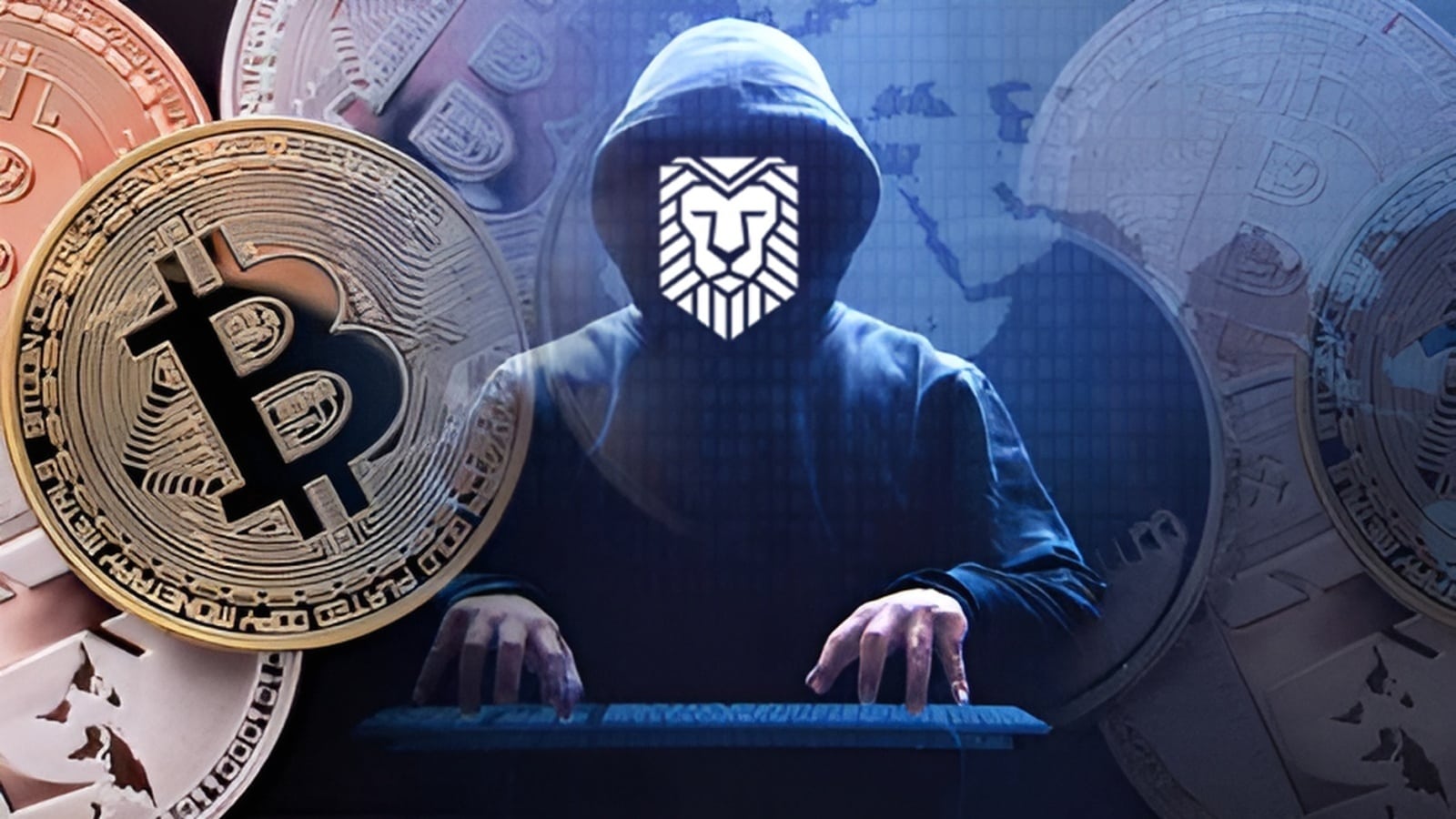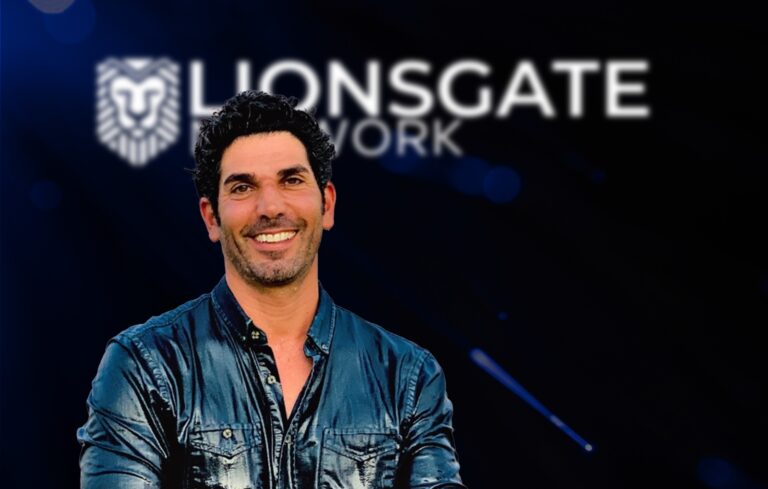Crypto
Cryptocurrency tech firm blocks terrorists’ access to cash – ISRAEL21c

Could Israel eradicate Hamas and other terrorist networks without a single person killed and without any boots on the ground or planes in the sky?
That was what the Israeli Ministry of Defense wanted to know when it contacted Lionsgate Network, a 13-person Israeli startup that helps individuals and private investors recover money from their hacked or scammed cryptocurrency wallets.
Could Lionsgate Network apply its knowhow to blocking the terrorists’ access to their virtual cash? After all, even terrorists need money to buy more rockets or fuel to power their extensive network of underground tunnels.
“If you want to hit terror, you need to cut off their stream of capital,” Bezalel Raviv, CEO of Lionsgate Network, tells ISRAEL21c. “You don’t have to kill people to get it done. You just need to kill the transfer of funds.”
Kidnapping yields a jackpot
Those funds are not just about acquiring more projectiles or moles for digging underground tunnels.
“Reports indicate that, if a Gazan citizen kidnaps an Israeli, they stand to receive compensation of $1.2 million from Hamas,” Raviv says.
“Given the oppressive economy in Gaza, where a full day of labor is valued at only $13, it would take an average Gazan 352 years to earn that amount. Kidnapping an Israeli is like winning the jackpot. Having pushed Gaza into poverty, Hamas has shifted its focus from the previous religious rhetoric of 72 virgins in paradise to a purely greed-driven agenda.”
That is, the 72 virgins promised to Muslim martyrs are no longer the main story because Hamas recruits need money here and now, not in the next lifetime.
Hamas has, as is now well-known, been receiving payment for its “activities,” initially from Qatar, which sent cash stuffed in leather suitcases with Israeli permission.
As Gaza’s borders closed due to the ongoing conflict, Hamas diversified its funding sources, turning to cryptocurrencies.
“If Israel had proactively blocked Hamas’s crypto-wallets before October 7, the war might have concluded by now,” Raviv speculates.
Iran is bankrolling Hamas
Iran contributes roughly $100 million a year to Hamas via crypto-exchanges.
“The entire amount of money in the world today stands at around $83 trillion,” Raviv says, with crypto transactions representing about $1.4 trillion – “1.5% of that big pile.”
A chunk of this, Raviv adds – possibly tens of billions of dollars – “is with leaders of groups such as Hezbollah, Islamic Jihad and Hamas – all in the crypto game.”
Raviv sees Lionsgate Network as “the security guard for crypto banking, watching over transactions to ensure safety for both current and new users in the crypto world.”
When the Israel Defense Forces came calling, it was for a legal need.
“When the conflict started on October 7, I received a call from a friend managing one of the war rooms at the Ministry of Defense,” Raviv recalls.
She told Raviv, “We suspect some crypto-wallet addresses are linked to Hamas, but we lack the necessary evidence to freeze them.”
Unlike the terrorists, Israel operates according to international law.
Clues left by Hamas
Before Lionsgate Network had even initiated its first-step analysis, Raviv observed that the wallets in question were associated with donation campaigns aimed at assisting Gazans.
“However, the clues left by Hamas provided a different perspective — it was a classic ‘red hat’ scenario, a wolf dressed as a sheep.”
Raviv and his team were able to provide the much-needed evidence the army required, leading to the successful freezing of tens of millions of dollars from around 100 crypto-accounts, according to official reports.
“We’ve named it the Balaam Act,” Raviv says, referencing the biblical figure who was initially hired to curse Israel but ultimately bestowed a blessing upon the Jewish people.
“In this context, funds initially intended to support terror can now be repurposed to reconstruct the damage caused by those acts of terror” or to pay for temporary housing for hundreds of thousands of displaced Israeli citizens.

Since 2021 – before Lionsgate Network even existed – Israel’s National Bureau for Counter-Terror Financing (NBCTF) has issued seven orders to seize crypto-funds held by three of the exchanges used by Gaza-based terrorists.
Two of these orders alone resulted in the freezing of $134 million. The NBCTF says that, at times, as much as half the money going through these exchanges went to Hamas.
That said, the wallets identified in the seizure orders “likely only represented a fraction of the wallets used by Hamas,” The Wall Street Journal reports. “It’s a drop in the ocean,” a former Israeli official said.
Secret sauce
Raviv is cautious not to share too much of Lionsgate Network’s proprietary methods for identifying an entity from a crypto-transaction.
However, the essential action involves monitoring when a tracked account engages in a transfer or purchase.
“We focus on identifying how you cashed out. If someone buys Nike shoes using crypto, it provides us with a closed circle regarding the person’s identity – not to mention their shoe size!” Raviv explains.
Although cryptocurrency wallets can be set up without the holder’s name, “growing worldwide regulations mean that most places of commerce will ask you to identify yourself now. That’s one of the many loopholes we look for when running our analysis,” Raviv explains.
What if a terror group doesn’t make a purchase but is hoarding its ill-gotten bounty? Lionsgate Network has a number of tricks up its virtual sleeves.
“In case of suspicion or a hot tip from reliable sources, we can uncover digital footprints tied to your identity – potentially without your awareness,” Raviv explains.
“Actions as seemingly innocuous as using Google from a coffee shop leave discernible traces. Whether it’s hacks, phishing, or ‘black hat’ activities, even the most adept individuals inadvertently leave digital fingerprints. We only need one in order to cross reference. Achieving complete anonymity in the digital realm is nearly impossible.”
Lionsgate Network can also evoke a response. For example, they might send an NFT to fraudulent wallet owners that hints law enforcement is on to them and they ought to move their money now to keep it safe. As soon as it’s moving, Lionsgate Network is all over it.
Thinking outside the box
Lionsgate Network has been working with clients for 14 months. The company’s mandate up to now has been to help private investors recover their cash after being crypto-scammed.
Once Lionsgate Network has identified and contacted the bad actor, most cases are settled within 24 hours, Raviv says.
The company marked the resolution of its 1,000th case last July, seizing a substantial amount from Binance, the world’s largest crypto-exchange.
Lionsgate Network’s analysts earn a commission based on success.
“They are incentivized to think out of the box,” Raviv says. The company also pays out 1.5% of the final settlement amount to those who can provide tips on where the money is or who can help solve a client’s case.
The work is mostly manual. Yes, there are software tools that Lionsgate Network’s analysts can use, but because bad actors change their “attire” for each case, consistent patterns are elusive and human intelligence is required.
The backstory
The company is based in Tel Aviv, although ever since the Covid-19 years the team has been working remotely.
Lionsgate Network is bootstrapped, with most of its startup funding coming from Raviv himself.
“In my twenties, I was a singer/songwriter,” he tells ISRAEL21c. But making a living in the music industry is tough, so after 10 years, Raviv shifted to investment banking.
After a hacker broke into his own crypto-wallet, Raviv realized that “millions of others must have had the same problem.” Raviv was able to get his money back. The next step was to help others.
Raviv stresses that the company currently only blocks terrorist accounts from Israel. While the company has been profitable “from the first month,” Raviv aims eventually to raise money in order to expand Lionsgate Network’s terror-busting footprint to other countries.

When it comes to helping individual investors, there are no border limitations.
Well, almost none.
“When we launched our first global campaign, we got tens of requests from individuals in Iran,” Raviv tells ISRAEL21c. “We had to decline. Israeli law forbids us from interacting with the citizens of Iran. Generally speaking, though, we can service anyone where the law allows it.”
Crypto scams and hacks are growing. That’s because most Western countries are trying to phase out cash. Already in Israel and Europe, you can’t pay for something in cash if it’s more than around $2,000.
With 83 million crypto-wallets out there – racking up a stunning loss of $16 billion between 2021 to 2023 — this Israeli lion that can help you recover your money (or stop terrorists from using theirs) has clearly come roaring out of the gate.
For more information, click here.

Crypto
ZIUM Launches to Revolutionize Instagram and Cryptocurrency Solutions

Zagreb, Croatia–(Newsfile Corp. – January 12, 2025) – ZIUM, a cutting-edge agency founded to tackle some of the most pressing challenges in social media and digital marketing, is now officially open for business. Specializing in Instagram username claims, account unbans, and cryptocurrency marketing, ZIUM has positioned itself as a trusted partner for individuals and businesses seeking innovative solutions in the digital age.
The agency operates at the intersection of technology, social media, and blockchain marketing, empowering clients to unlock their full potential online. With a dedicated team of experts and a results-driven approach, ZIUM is redefining the way people navigate the ever-changing online landscape.
ZIUM
To view an enhanced version of this graphic, please visit:
https://images.newsfilecorp.com/files/9586/236268_f6b779d0b42269a0_001full.jpg
A New Era of Digital Problem Solving
ZIUM’s services address real-world challenges in today’s digital ecosystem. Instagram, one of the largest and most influential social platforms, has become a critical tool for personal branding, business promotion, and community engagement. However, issues such as unavailable usernames or unfair account suspensions can hinder growth and cause frustration. ZIUM steps in to provide solutions that are fast, efficient, and tailored to each client’s needs.
Additionally, ZIUM excels in cryptocurrency marketing, offering projects and startups a strategic edge in the fast-paced blockchain industry. By combining deep knowledge of crypto trends with cutting-edge marketing strategies, the agency helps blockchain projects stand out in an increasingly crowded market.
Core Services Offered by ZIUM
-
Instagram Username Claims
In the crowded social media space, having the perfect Instagram username can make all the difference. Whether it’s for a brand, influencer, or business, ZIUM specializes in acquiring sought-after usernames to align with clients’ goals and identities. The agency handles the process from start to finish, ensuring a smooth and hassle-free experience. -
Instagram Account Unbans
Account suspensions on Instagram can be devastating, especially for businesses and influencers relying on the platform for engagement and revenue. ZIUM offers expert account recovery services, helping clients navigate Instagram’s policies to regain access to their accounts quickly and effectively. -
Cryptocurrency Marketing
The cryptocurrency space is highly competitive, and visibility is key. ZIUM provides end-to-end marketing strategies tailored to blockchain projects, ensuring they reach the right audience. From brand development to targeted campaigns, ZIUM helps crypto ventures grow and thrive in an ever-evolving market.
Crypto
Donald Trump Embraces Meme Coins—A Presidential First

Donald Trump is making news once more, but this time it’s not for political reasons; it’s about cryptocurrency. As he prepares to return as the 47th President of the United States, Trump will become the first sitting president to own meme currencies, a decision that has stirred both enthusiasm and skepticism in the crypto community.
Trump: A Significant Crypto Portfolio
Recent sources claim that Trump’s crypto wallet consists largely of meme coins and is valued roughly $8 million. Among the assets are $1.5 million in a meme currency with Trump-themed design and $5.5 million in TROG tokens.
In addition, he has about 1.3 billion GUA coins, which amounts to nearly $400,000, and $167,000 in TRUMPIUS tokens. This is a first of its kind, where Trump becomes an oddity in the world of politics and cryptocurrency, considering his earlier reluctance towards digital assets.
DONALD J. TRUMP WILL BE THE FIRST SITTING US PRESIDENT TO HOLD MEMECOINS pic.twitter.com/ODlNXDaKIT
— Arkham (@arkham) January 10, 2025
From Skepticism To Support
Trump’s journey into the crypto world is notable. He had been a strong critic of Bitcoin and other cryptocurrencies, calling them scams. But that all changed in 2024 when he started publicly endorsing Bitcoin and speaking out for the right to own it. That’s a broader trend among politicians, who are increasingly recognizing the potential of cryptocurrencies and their growing popularity among voters.
Trump’s financial success in the digital sphere was also aided by his venture into non-fungible tokens (NFTs) on Ethereum. Trump reportedly made a good living from these endeavors, and he currently owns roughly 496.77 ETH, which is worth about $1.6 million.
Implications For Regulation
Many people are eager to see how Trump’s administration will regulate cryptocurrencies now that he is back in office. A possible change toward a more advantageous regulatory climate for digital assets is hinted at by the nomination of important individuals like David Sacks as “Crypto Czar” and Paul Atkins as SEC chair. This could result in more precise rules for investors and businesses involved in the cryptocurrency industry.

Donald Trump. Image: Ronda Churchill/Reuters
The policies by Trump are already changing market dynamics as everybody is anxiously awaiting them. During this time when Bitcoin hit a record high of $108k, while meme coins surged, analysts still feel that Trump could make the year 2025 a major turning point in cryptocurrencies.
Meme Coin Boom
The rise of Trump-owned meme coins is indicative of a broader cultural shift among younger investors who are fed up with established financial institutions. This combination of the political influence of Trump and the speculative nature of meme coins puts a scenario under which political events could significantly affect cryptocurrency markets. Thus, while the investors go about this, they are not ignorant of the volatility that is usually associated with meme coins.
Featured image from Fortanix, chart from TradingView
Crypto
Scammers steal $2 million in cryptocurrency from remote work seekers in New York, Florida

Scammers stole millions of dollars in cryptocurrency from remote job seekers in an elaborate scheme. New York Attorney General Letitia James has filed a lawsuit to recover over $2 million that she said was stolen from New Yorkers and others nationwide.
Scammers used unsolicited text messages to lure victims with promises of flexible, well-paying remote work opportunities. They claimed the job involved reviewing products online to generate market data. However, victims were told to open cryptocurrency accounts and maintain balances matching the price of products they were reviewing.
While victims believed they would receive their investments plus commissions, the funds were instead transferred into the scammers’ crypto wallets. The fake product reviews took place on a fraudulent website created as part of the scheme.
The lawsuit details seven people who were scammed. One victim, a New Yorker, lost over $100,000 while another victim from Florida lost over $300,000. These cases show the significant financial and emotional impact on the victims.
James’ office, working with Queens District Attorney Melinda Katz and her cryptocurrency unit, traced the stolen funds to specific digital wallets. Over $2 million in cryptocurrency has been frozen, ensuring it can be returned to victims.
“Deceiving individuals seeking remote work is cruel and unacceptable,” said James. “We’re committed to holding scammers accountable and recovering stolen funds.”
-

 Politics1 week ago
Politics1 week agoNew Orleans attacker had 'remote detonator' for explosives in French Quarter, Biden says
-

 Politics1 week ago
Politics1 week agoCarter's judicial picks reshaped the federal bench across the country
-

 Politics1 week ago
Politics1 week agoWho Are the Recipients of the Presidential Medal of Freedom?
-

 Health7 days ago
Health7 days agoOzempic ‘microdosing’ is the new weight-loss trend: Should you try it?
-

 World1 week ago
World1 week agoSouth Korea extends Boeing 737-800 inspections as Jeju Air wreckage lifted
-
/cdn.vox-cdn.com/uploads/chorus_asset/file/25822586/STK169_ZUCKERBERG_MAGA_STKS491_CVIRGINIA_A.jpg)
/cdn.vox-cdn.com/uploads/chorus_asset/file/25822586/STK169_ZUCKERBERG_MAGA_STKS491_CVIRGINIA_A.jpg) Technology3 days ago
Technology3 days agoMeta is highlighting a splintering global approach to online speech
-

 World1 week ago
World1 week agoWeather warnings as freezing temperatures hit United Kingdom
-

 News1 week ago
News1 week agoSeeking to heal the country, Jimmy Carter pardoned men who evaded the Vietnam War draft














